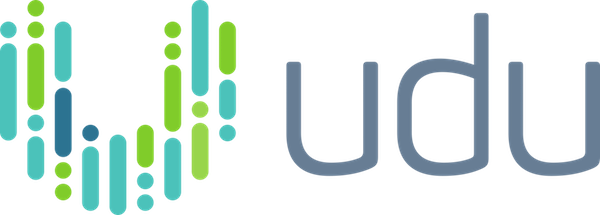Deal Sourcing: How AI Unlocks Private Company Data

If you’re working in private equity today, you’re under pressure to find the best opportunities. The space has never been busier–more money’s been invested (a record $1.12 trillion in 2021, Bain & Company reports), and more deals are being done. A staggering $3.4 trillion in dry powder was on hand globally at the start of 2022, awaiting investment.
The hard part is finding the best companies to invest in or acquire. Nearly 70 percent of investment professionals report they feel under more pressure than ever before to beat the competition to the best opportunities, a Forbes/FactSet report found.
This all takes place with the backdrop of how time-consuming and difficult it is to research most private-equity investments. The challenge? The majority of the companies considered as potential PE targets are privately held. There’s little public data readily available about them.
It takes digging to identify the best acquisition opportunities. That research needs to happen fast, too, before another buyer makes an offer.
Slow Adoption of AI in Investing Creates Opportunity
So far, only one-third of the investment industry uses advanced technology such as AI and machine learning to vet many private companies quickly, Forbes/FactSet found. That means the implementation of advanced technology tools offers a serious competitive edge today.
Many investment professionals don’t understand how AI could help speed up the deal sourcing process while also finding more, better-quality leads.
They just know they’re getting overwhelmed. There simply isn’t time to do all the needed research the old-fashioned way, with a team poring over websites or reviewing documentation on hundreds of prospective targets. Not with competitors breathing down your neck and looking to lock down the best targets before you find and qualify them.
This is where artificial intelligence (AI) and algorithmic scoring make the difference. What is algorithmic scoring in AI, and how can it help private-equity investors? Here’s a primer:
Artificial Intelligence for Deal Sourcing Explained
AI holds the promise of faster, better deal sourcing because it’s much more than merely a database of businesses. With real-time data sourced constantly from the internet, robust AI tools scan for company information, turning up a larger number of prospective acquisitions than can be found by a human researcher in a similar timeframe. Deep Internet searches allow AI to find emerging opportunities competitors may not have spotted.
People tend to use familiar pathways of discovery and employ commonly known resources. By contrast, AI searches for information online in all directions. That means AI often turns up less obvious opportunities that human researchers miss. AI has no biases and rules nothing out–plus it never takes a break.
Once you’ve obtained a broader pool of potential deal targets using AI, you face the next challenge: how to rapidly prioritize within this large dataset to find the best prospects. That’s where algorithmic scoring works its magic.
How Algorithmic Scoring Works
Based on a few examples of businesses that match your search criteria, AI can start to build an understanding of what traits are desirable in a potential target. The model then weights various factors in your search results as good or bad.
The algorithm then can sort the results into higher and lower priorities, reducing your research time and increasing search efficiency. The model is then applied to the specific industry search you want to do, for the business type you seek to acquire to deliver a short list of the highest-value prospects.
As you respond to the results your AI delivers, the tool learns more about what you want. This is what’s called machine learning. Continued use of the tool means it becomes more efficient as it goes, delivering progressively more useful results.
The result is that the algorithm can deliver a list of the top 20 or 30 best acquisition targets for a particular set of defined parameters. This spares you or your investment team the painstaking task of digging through a list of thousands to find the few gold nuggets.
Algorithmic Scoring in Deal Origination: A Case Study
Let’s say you’re looking to acquire eco-friendly dry-cleaning businesses located in high-traffic, urban markets. This highly fragmented market is ripe for consolidation, so you’d like to make several acquisitions. The hope is to create efficiency by forming a chain of similar dry-cleaning locations.
To achieve this goal, you could spend untold hours sifting through thousands of dry cleaners’ websites, searching for information about whether they use non-toxic cleaning processes or not. You could also pore over maps to make sure they’re in a dense enough neighborhood to predict high sales volume.
Or, you could program your AI algorithm to find green cleaners in major markets for you.
The tool will quickly develop a list of possible key phrases that imply a cleaner is eco-friendly. “Toxin-free,” “green dry cleaning” or “eco-friendly clothes cleaning” might be seen repeatedly and tagged as positive indicators.
By the same token, mention of traditional cleaning agents or processes would down-rank a cleaner. Digging deeper, the algorithm might sort for a specific green-cleaning approach that you prefer, so that you can buy chemicals in bulk for all your units.
This eco-cleaning information could then be crossed with your geographic screen, comparing addresses with population data for their neighborhood. Between the two factors, the algorithm creates a short, ranked list of the best candidates that are both eco-friendly and in high-traffic zones.
Your investigation time has been dramatically shortened, and the quality of what you’ve turned up is better, too. Most of the unsuitable candidates have been eliminated–all without staff having to learn the fine points of dry-cleaning terminology or delve into Census Bureau data.
Instead of vetting hundreds of potential candidates, one at a time, you have a ranked list of the best few potential acquisitions. You can move directly to contacting these select few for preliminary discussions.
AI and Algorithmic Scoring–A Competitive Edge for Deal Sourcing
If you’ve been looking for ways to speed up your deal sourcing and improve lead quality, AI and algorithmic scoring can help. Be sure to choose a robust AI tool that can do the kind of scoring described above. Ask for a demonstration of the tool in action, to see exactly how that particular solution works, so you understand all it can offer.
Eventually, AI will become more standard in the private equity investing sector. Until then, those who are early adopters gain an advantage.
Rett Crocker is the CEO of udu, which offers AI-powered deal sourcing for private equity and other business buyers and investors. To learn more about AI-driven business development, schedule a demo here.
